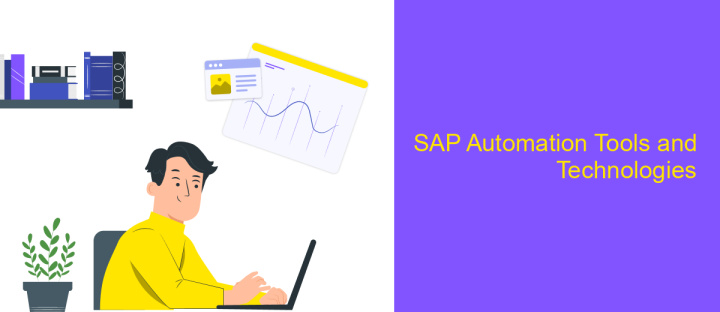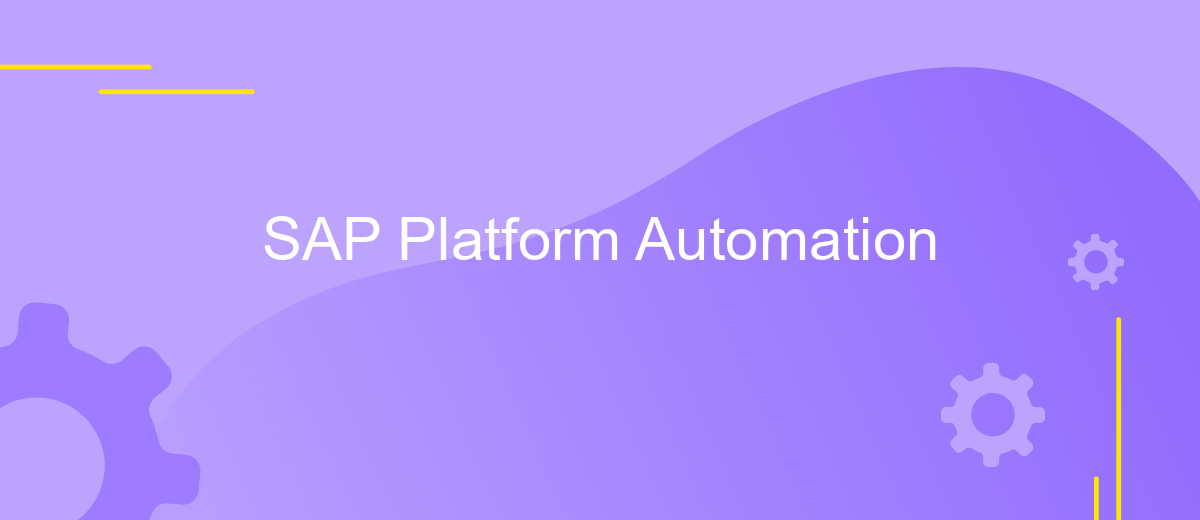SAP Platform Automation
The SAP Platform Automation article delves into the transformative power of automating processes within SAP environments. By leveraging advanced tools and technologies, businesses can enhance efficiency, reduce errors, and streamline operations. This automation not only optimizes resource utilization but also accelerates decision-making and innovation. Join us as we explore the key benefits, strategies, and best practices for implementing automation in SAP platforms to drive business success.
Introduction to SAP Platform Automation
SAP Platform Automation is a transformative approach designed to streamline and enhance the efficiency of business processes within SAP environments. By leveraging automation, organizations can significantly reduce manual intervention, minimize errors, and accelerate the deployment of SAP solutions. This not only optimizes resource utilization but also ensures a more agile and responsive IT infrastructure. Automation in SAP platforms is crucial for businesses aiming to maintain competitiveness in a rapidly evolving digital landscape.
- Improved operational efficiency through reduced manual tasks
- Enhanced accuracy and consistency in processes
- Faster deployment and integration of SAP solutions
- Cost savings from optimized resource allocation
- Increased agility and adaptability to market changes
Implementing SAP Platform Automation involves a strategic blend of tools and technologies that work harmoniously to automate repetitive tasks and complex workflows. By doing so, businesses can focus on innovation and strategic initiatives rather than routine maintenance tasks. As a result, SAP Platform Automation not only supports the current operational needs but also lays the foundation for future growth and scalability in the digital era.
Key Benefits of Automating SAP Platforms

Automating SAP platforms offers numerous advantages that streamline business operations and enhance efficiency. One of the primary benefits is the reduction in manual errors, which can be costly and time-consuming to rectify. Automation ensures that processes are executed consistently and accurately, thereby improving data integrity and reliability. This leads to more informed decision-making and boosts overall productivity as employees are freed from repetitive tasks and can focus on more strategic activities.
Another significant benefit is the seamless integration of various business processes and systems. Automation tools like ApiX-Drive facilitate the integration of SAP platforms with other applications, enabling smooth data flow and communication across different departments. This connectivity enhances collaboration and ensures that all stakeholders have access to real-time information, leading to faster response times and improved customer satisfaction. Additionally, automating SAP platforms can result in substantial cost savings by optimizing resource utilization and minimizing downtime, ultimately driving business growth and competitiveness.
Common SAP Automation Use Cases

SAP Platform Automation is transforming business processes by streamlining operations and enhancing efficiency. Organizations are increasingly leveraging automation to optimize their SAP environments, reduce manual intervention, and minimize errors. Automation tools and techniques are being implemented to address repetitive tasks, improve data accuracy, and ensure compliance with industry standards. The following are common use cases where SAP automation is making a significant impact.
- Data Migration: Automating data transfer between SAP systems and external applications ensures accuracy and reduces downtime during transitions.
- Invoice Processing: Automation streamlines invoice management by capturing, validating, and posting invoices, significantly reducing processing time.
- User Management: Automated workflows for user provisioning and de-provisioning enhance security and reduce administrative overhead.
- System Monitoring: Continuous monitoring of SAP systems through automation helps in early detection of anomalies, ensuring system stability and performance.
- Compliance Reporting: Automated reporting tools ensure timely and accurate compliance with regulatory requirements, reducing the risk of non-compliance.
By deploying automation in these areas, businesses can achieve greater operational efficiency and agility. SAP automation not only reduces costs but also frees up valuable resources, allowing teams to focus on strategic initiatives. As technology evolves, the scope of SAP automation will continue to expand, offering even more opportunities for process optimization.
SAP Automation Tools and Technologies

SAP automation tools and technologies play a pivotal role in enhancing business processes by streamlining operations and reducing manual intervention. These tools are designed to automate repetitive tasks, improve accuracy, and save time, thereby allowing organizations to focus on strategic initiatives. With the integration of advanced technologies, businesses can achieve higher efficiency and scalability.
One of the key benefits of utilizing SAP automation tools is the ability to seamlessly integrate with existing systems. This integration ensures that data flows smoothly across various departments, leading to improved collaboration and decision-making. Additionally, these tools provide real-time insights, enabling businesses to respond swiftly to changing market conditions.
- SAP Intelligent Robotic Process Automation (RPA)
- SAP Business Technology Platform (BTP)
- SAP Cloud Platform Integration Suite
- SAP Solution Manager
- SAP Enable Now
Implementing SAP automation technologies requires a strategic approach to ensure alignment with business goals. Companies must assess their current processes and identify areas where automation can deliver the most value. By doing so, they can leverage these technologies to drive innovation, enhance productivity, and maintain a competitive edge in the market.
- Automate the work of an online store or landing
- Empower through integration
- Don't spend money on programmers and integrators
- Save time by automating routine tasks
Best Practices and Considerations for SAP Automation
When implementing SAP automation, it's crucial to establish clear objectives and prioritize processes that will benefit most from automation. Begin by assessing the current workflows to identify bottlenecks and repetitive tasks that can be streamlined. This evaluation will help in selecting the right tools and technologies, ensuring compatibility with existing systems. Additionally, consider the scalability of your automation solutions to accommodate future growth and changes in business processes.
Integration plays a vital role in successful SAP automation. Leveraging platforms like ApiX-Drive can facilitate seamless integration between SAP and other enterprise applications, enabling efficient data flow and process synchronization. It's important to ensure robust security measures are in place to protect sensitive data during these integrations. Regularly updating and maintaining your automation solutions will help in minimizing disruptions and ensuring optimal performance. Lastly, involve key stakeholders in the planning and implementation phases to foster collaboration and ensure the automation aligns with business goals.
FAQ
What is SAP Platform Automation, and why is it important?
How can businesses start implementing automation on the SAP platform?
What are the benefits of using automation tools with SAP?
Can SAP Platform Automation be customized for specific business needs?
How does automation affect data integration within SAP systems?
Apix-Drive will help optimize business processes, save you from a lot of routine tasks and unnecessary costs for automation, attracting additional specialists. Try setting up a free test connection with ApiX-Drive and see for yourself. Now you have to think about where to invest the freed time and money!


